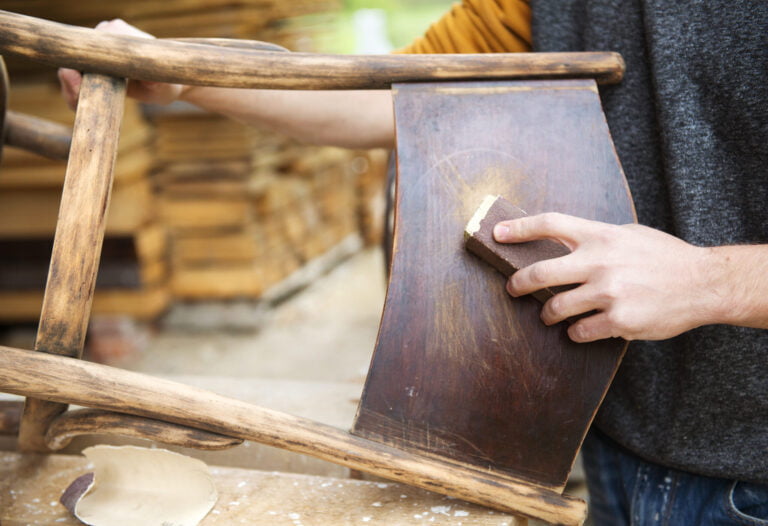When the words “private investigator” pop up, most people associate the term with something they’ve read in a book or have seen in a movie or television show. Columbo, Sam Spade, Jessica Fletcher, Nancy Drew, Miss Marple, Jessica Jones, Magnum PI, Veronica Mars, and Monk are names which most people associate with the term private investigator, gumshoe, or private eye.
In reality, private investigators are people who simply delve into things and finds facts. They analyze information about legal, financial, and personal matters while offering many investigation related services. This can include verifying people’s backgrounds, tracing missing persons, investigating computer crimes, and in some cases even working for celebrities. Investigators also often work for attorneys in civil and criminal related cases. For those seeking a career as a private investigator, here are a few pieces of advice.
1. Utilize current technology.

Technology has made it easier for a private investigator to do client work in the United States. Gone are the days of antiquated sleuthing, typical of when the business of private investigation began in 1833. Now we are surrounded by a ton of technological marvels that assist a private eye to get to bottom of whatever they are investigating.
One piece of tech which private investigators should look at adding to their arsenal includes asset tracking software, or asset management software. This tool focuses on the process of tracking and monitoring the fixed or movable assets for financial accounting, preventive maintenance, and theft deterrence purposes.
As a private investigator, you’ll want to keep up with the tracking tools which you’ll use during an investigation. Police use law enforcement asset tracking software at their departments, to keep up with many pieces of their own equipment. Whether it’s a digital camera or a laptop computer, this asset tracking software can be used to keep track of your own equipment.
Another tech method to use as a private investigator is dictionary mining. This is a method where spam bots are used to guess email addresses. It can also be used for private investigation purposes as well. Subjects of investigations will often use nicknames for their emails, as well as in social media forums and blogs.
A private investigator can often try sending a text message to a certain email address. If they receive a bounce-back/ delivery failure message, there’s a good chance that the email address was incorrect. If you don’t receive a bounceback, this means that the email address is more than likely correct.
You can also utilize reverse image tracking through Exif Data and Tineye. By utilizing Tineye, you’ll first need a person’s name. Using this you can find websites which a person visits. After doing this, you can do a reverse lookup to find other sites they have visited, in addition to possibly finding a person’s location. With Tineye, you can use a profile picture to discover other websites where the subject has gone to, where they utilize the same profile picture.
When people use smartphones, their pictures are often Geotagged with GPS coordinates. Looking inside at the EXIF data you can possibly find where the picture was taken once it is posted on social media. These are just some of the technologies that you can use in performing private investigation activities.
2. Find a good law firm to work with.
Private investigators are a popular resource which law firms use. Attorneys will often hire private investigators to do the fieldwork, background checks, and fact-checking, no matter the type of case. This allows a lawyer to be freed up to focus on the legal aspects of a case. Many law firms even keep a full-time private investigator on retainer. Investigators are also used to investigate the scene associated with a case, find witnesses, locate assets, and gather the information that will be necessary for a trial.
Whether you’re a personal injury lawyer in Woodland Hills or a civil case attorney in Los Angeles county, it helps to have a private investigator on staff with your firm. When a law firm hires a private investigator, a case might be promptly completed, which can save the law firm time and money.
3. Serve court documents.

Serving court documents is one of the many tasks which private investigators will undertake in their day to day activities. When you “serve papers” you are officially handing over legal papers to another person. These papers have to be “served’ on any other person who is a part of a lawsuit, or to who the law requires that the papers be served.
This will inform the persons involved in the case what you are telling the court and what you are requesting the court to do. People often have a disdain for going to court, and in some cases, will avoid having to do this. No matter the reason for showing up at court, which can include facing a lawsuit, divorce, or another civil case, people just don’t like coming to court.
Process servers are needed to serve official court documents and legal papers in cases like these. You can utilize local police to help with serving legal papers, but in most cases, a private investigator will do just as well. Private investigators are great choices for figuring out how to serve someone.
Private investigators, first and foremost, have years of experience in tracking people down. They are tasked with tracking down subjects or assets with pretty much every case that they take on. This can include finding specific documents, or people themselves. With years of techniques gleaned on finding those people who don’t want to be found, private investigators make really good process servers.
Investigators also have a good habit of being able to blend in. If a person doesn’t want to be found, they often make it difficult for people to locate them and be served these notifications. They might find a place to stay, where anyone who looks out of the ordinary will be easy to spot. In the case of a private investigator, he or she will find ways to blend into such surroundings. It’s not until a subject is actually served a legal document that they realize that a private investigator has been under their nose for a while now.
Though serving legal papers is something which police officers can handle, they are often dealing with more high priority cases. For individuals who are dealing with life and death issues, having someone else to handle the much smaller priority issues of serving legal papers can be helpful for a local police department. Private investigators are often more than willing to step in and serve legal papers to free up police officers for more important and crucial work.
4. Keep your distance with surveilling.
When you’re on a surveillance detail, you don’t want your subject knowing that you even exist. Do this by keeping your distance. Try and stay at least 4 or 5 houses down to avoid having your subject see you. What you’re hoping to do is still have a way to see which people or cars leave the person’s house. Try to keep a clear line of sight if you need to gather photo or video evidence. Also, try to not park directly in front of someone’s house. Try your best to park in between houses to avoid suspicion.











